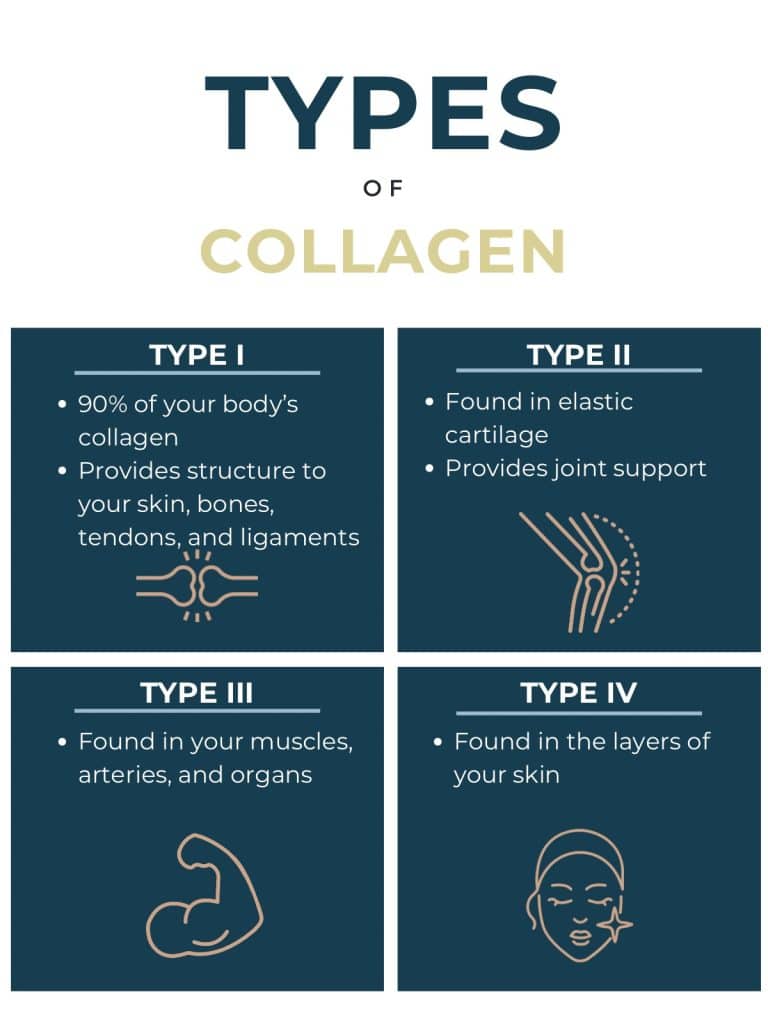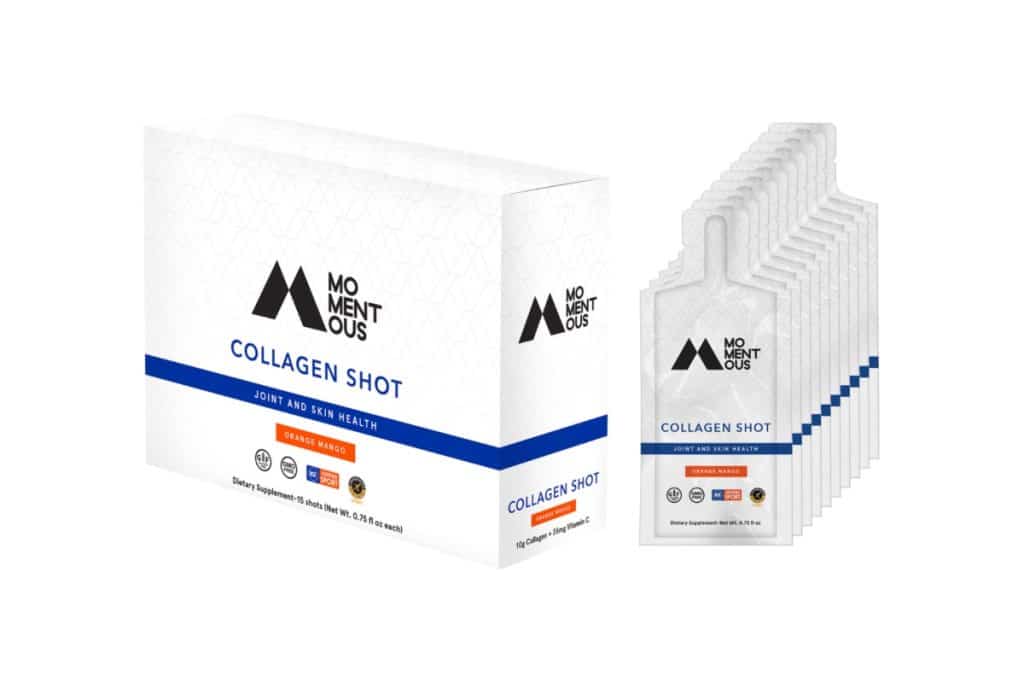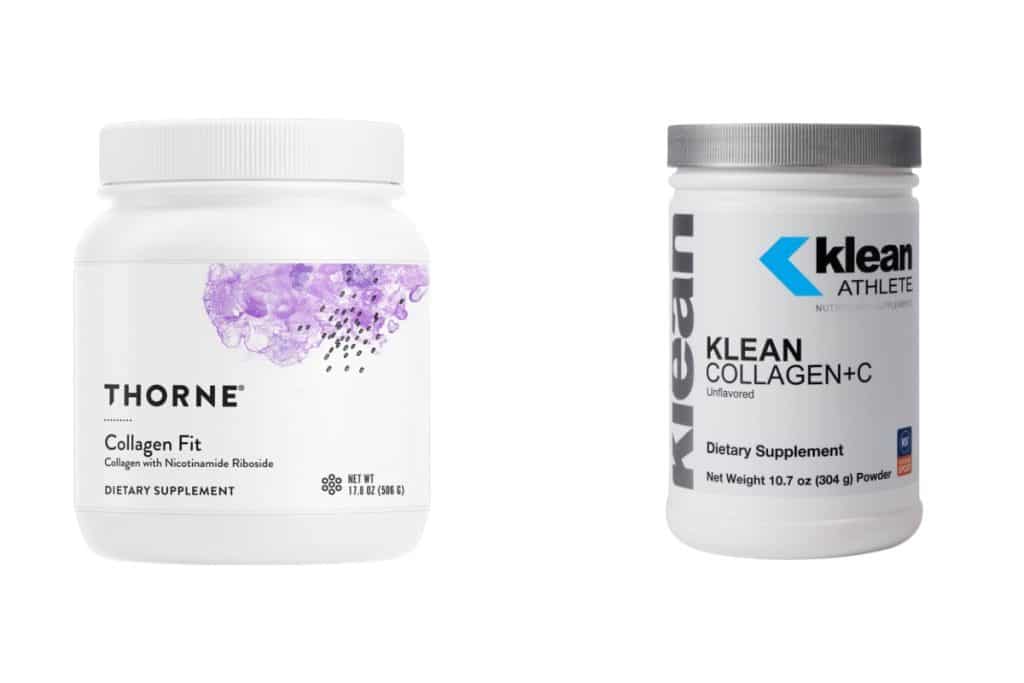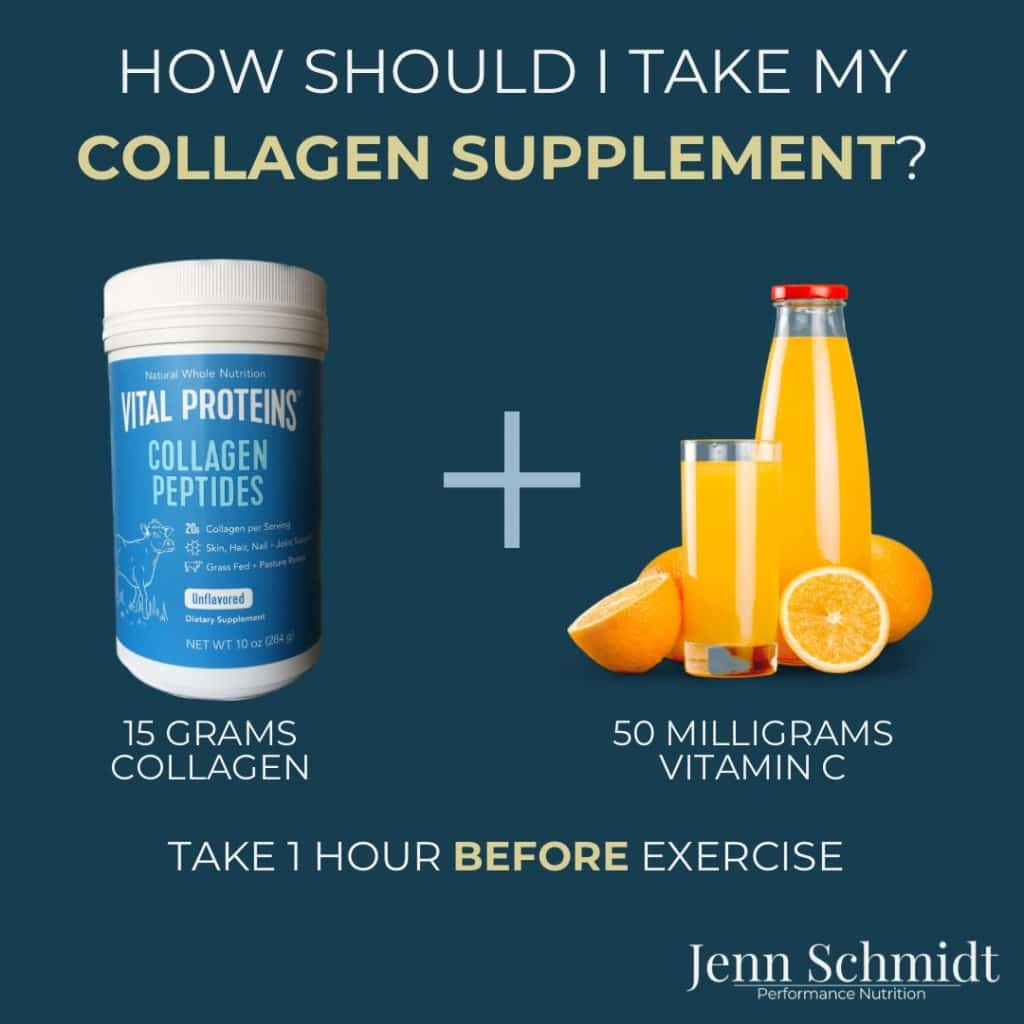Collagen is constantly getting a lot of buzz in the health and wellness world, but you might be wondering the difference between liquid collagen vs powder collagen.
Hey, I’m Jenn, a Registered Dietitian who has a passion for helping individuals fuel, think, and move towards the best versions of themselves without sacrificing their relationship with food. If you want practical, evidence-based nutrition advice to improve your performance and wellness — Learn how I can help.
In this blog, we will navigate collagen supplementation, liquid collagen vs powder collagen, and why you might choose one over the other or none at all.
Let’s start with what collagen is and what it does…
What is collagen and why is it important?
To start collagen is a protein…actually, it is the most abundant protein in the body. It is a crucial component of connective tissue cartilage, bone, and skin.
There are 28 different types of collagen but types I, II, III, and IV are most common. If fact, 90% of the collagen in the human body is type I.

We produce collagen naturally daily using vitamin C and amino acids. As we age, collagen production naturally starts to decrease at 18-29 years old, and after 40 years the body loses around 1% per year.
Other factors that decrease our natural collagen production include:
- Smoking
- Poor diet
- Excess sun exposure
- Excessive alcohol consumption
Despite needing more research overall, there are some evidence based benefits of collagen.
Joint Function and Pain
Cartilage is found between your bones and allows them to move without grinding into each other. Around two-thirds of the dry weight of cartilage is made up of collagen. Without that cartilage, you would experience joint pain and risk developing arthritis. When combined with an exercise program, collagen supplementation helps reduce joint pain and improve joint function in athletes.
Ligament and Tendon Health
Collagen plays an important role maintaining tendon health. Tendons are made up of 65-80% of collagen. This helps tendons take the impact from high-impact stress or force to mitigate potential injury risk in sports or exercise.
Muscle Mass
While collagen is not a complete protein and does not contain all of the 9 essential amino acids needed to build muscle tissue, it does play a role in the creation of muscle fibers. In a randomized control study, those who took 15 grams of collagen before resistance exercise showed an increase in strength when compared to the placebo group.
I would suggest not using collagen as your recovery protein but rather using it prior to working out and sticking to a complete protein source after a workout.
Gut Health
Claims of collagen “healing” people’s gut issues are a newer claim to hit social media. Gut health is a lot more complex than just adding a supplement. Currently, there is no scientific evidence to support these claims. Most of the “evidence” comes from anecdotal data and is not reliable.
Non-Performance Benefits
Skin and hair benefits might be the most advertised benefit of collagen on social media. Research does support claims that collagen supplementation helps with skin elasticity and hydration. However, other factors such as diet, hydration, and sun exposure all play a role in skin and hair health.
Collagen Supplements: Liquid Collagen vs Powder
There are claims online that liquid collagen might absorb better, but there is no scientific evidence that supports those claims. All forms of collagen are easily absorbed by your body.
I will say that not all supplements are created equal and could contain contaminants, different ingredients than on the label, and different amounts of ingredients than specified on the label. This is why I encourage everyone to buy third-party tested supplements from reputable sources.
Liquid Collagen
Liquid collagen is collagen that is ready to drink without having to mix.
Pros:
- Convenience. It is made for you to grab on the go or travel with
Cons:
- Price. Liquid collagen often has less collagen per serving than powder collagen and is typically more expensive
- Fewer options. There are a limited number of liquid collagen supplements that are third-party tested and contain 15 grams of collagen.
I recommend Momentus Collagen Shot for a convenient, third-party tested liquid collagen. Take two of the collagen shots one hour before working out.

Powder Collagen
Collagen powder is the more common and popular way to supplement collagen. It comes in a powder and you can mix it with whatever liquid works best for you.
Pros:
- Versatility. You can easily mix it into anything! I like to add it to smoothies, oatmeal, and baked goods.
- Cost. It is typically cheaper per serving than liquid collagen and contains more collagen per serving.
Cons:
- Less convenient. The powder is harder to take on the go due to the bulkiness of the tub. You can make your individual serving packages to take on the go.
- Mixability. When mixed with cold liquids, collagen powders can clump up making the texture not as appealing to drink.
I recommend Thorne’s Collagen Fit or Klean Althete’s Klean Collagen+C. Mix one scoop with your preferred liquid of choice.

How much collagen should you take?
As a performance dietitian, I would recommend a dosage of 15 grams of collagen along with 50 milligrams of Vitamin C taken 1 hour before exercise to maximize collagen synthesis.

Bottom Line: Is liquid collagen better than powder?
That decision is up to you. If you are on the go and won’t have the time, room or liquids for powdered collagen, then the liquid is for you. Powdered collagen could be the better option if you want to save some money and have versatility when incorporating the supplement in your nutrition routine.
Both liquid and powder collagen contain collagen peptides, which are easy for the body to digest. When combined with a balanced and adequate diet at the right time/dose there are potential performance benefits.
Knowing which supplements you might need or how to time them into your fueling schedule is hard. I help my clients get the most out of their supplements with individualized supplement protocols during my nutrition counseling programs.
If you want to learn how to get the most out of your collagen supplement, schedule a FREE 15-minute discovery call and we can discuss how I can help you.

Jenn Fink is a licensed and board-certified Registered Dietitian Nutritionist based in Minnesota. Her goal is to help busy people and families prioritize their health by living a balanced lifestyle and feed their families flavorful meals without spending hours in the kitchen. Jenn is passionate about all things food-related and enjoys making complex science easy to understand for her clients and readers.

